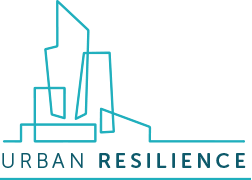A contested theme in economic resilience is the positive and negative effects of firms that are embedded (or grounded) in their local economy versus those that are more footloose. In this article we ask whether the size or ownership structure of firms makes a difference to the resilience of an economy?
A contested theme in economic resilience is the positive and negative effects of firms that are embedded in their local economy versus those that are more footloose. Whenever a distant parent company decides to close an important local employer there is a suggestion that the decision would have been different if the firm had been locally owned. For some, the presence of multinational branch plants can be a source of vulnerability owing to the risk of plant closure and the lack of local influence. However, evidence from the financial crisis paints a more complex picture, as this suggests that externally-owned firms can have access to resources (capital and experiential knowledge) that are unavailable to locally-owned firms. This can boost the resilience of an economy through providing the capacity to successfully manage an economic downturn. Despite this, the argument that firms that are ‘grounded’ in their local economy provide the foundations for a more resilient economy can be very powerful.
Whilst there is no official definition of what constitutes a ‘grounded’ firm, Brill and colleagues describe them as:
- firms of any size that are fundamentally attached in some way to their local economy and trade in niche products that are not scaleable, or,
- larger private and public sector organisations that deliver basic goods and services (such as health services or utilities).
The latter provide a stable foundation of jobs in a local economy, one that is less susceptible to the short-term effects of economic shocks. The former is more difficult to characterise as, on the whole, we tend not think about the economy in terms of the ownership of firms or the nature of the products produced. In theory, these firms have sufficient scale and embeddedness to deliver the propensity to innovate, a strong skills base and propensity to export. Equally, family-owned firms may be more able to withstand temporary falls in profitability and so contribute to the longer-term resilience of the economy, as they do not answer to external stakeholders. Focusing on grounded firms demands a new way of thinking about economic policy, looking beyond the current focus on growth-led performance.
In looking for examples of the potential benefits of grounded firms much been written about the value of the German Mittelstand. What stands out for most researchers is the importance of the culture and attitude of Mittelstand firms rather than the size of the company. Pahnke and Welter argue that the real strength of the Mittelstand lies in “the identity of ownership and management and a sense of belonging”. Similarly, Witt and Carr similarly suggest that their defining features are family ownership, innovativeness and longevity, as well as strong regional ties, social responsibility and investment in the workforce. In a notable piece of empirical research, researchers in Germany demonstrated how local firm owners chose to support locally-based competitors during the global financial crisis in order to maintain cluster capacities for the future. Comparing the outcomes of similar firms in these locally-connected clusters with comparable firms elsewhere in Germany they found that the seemingly altruistic behaviour of these cluster-based firms promoted a more resilient local economy.
Witt and Carr also note how successful Mittelstand firms are more likely to be global market leaders in niche markets than UK counterparts. Fear also highlights the importance of Mittelstand firms’ long-term outlook, commitment to staff (both in terms of training and retaining skilled staff during a downturn), focus on service, responsiveness to customer demands, and their constant upgrading of products. In this analysis grounded firms are clearly more than just local firms. This is an important distinction because firms that are overly-dependent on local markets can amplify the effects of economic downturns rather than protect against them.
It seems that the success of such firms is based on an export-orientation focusing on occupying international niches based on premium products. Mittelstand firms are midsize “global players” and typically follow conservative financing strategies that maintain family control. The example of the Mittelstand also highlights the importance of having an ethos of continuous product and market development, however conservative. The risk is that family firms prove to be risk averse, emphasising stability over development. In these circumstances the risk is that an economy dominated by such firms settles at a lower-level of long-term output with potential adverse consequences for future economic shocks.
At heart then, the lesson from the Mittelstand is that the presence of locally embedded firms, which embody a sense of social responsibility coupled with a strong regional identity, can help to strengthen the resilience of an economy. How such cultures are developed is worthy of much greater discussion. It is this question that should be addressed rather than focusing on a debate as to the relative merits of locally-embedded firms vs those that are controlled from afar; both can positively support the resilience of an economy.
Dr. Adrian Healy is a UKRI Future Leaders Fellow. All views expressed are his own. A version of this blog first appeared in a report for Welsh Government (Strengthening Economic Resilience: A literature review) published by the Wales Centre for Public Policy.
